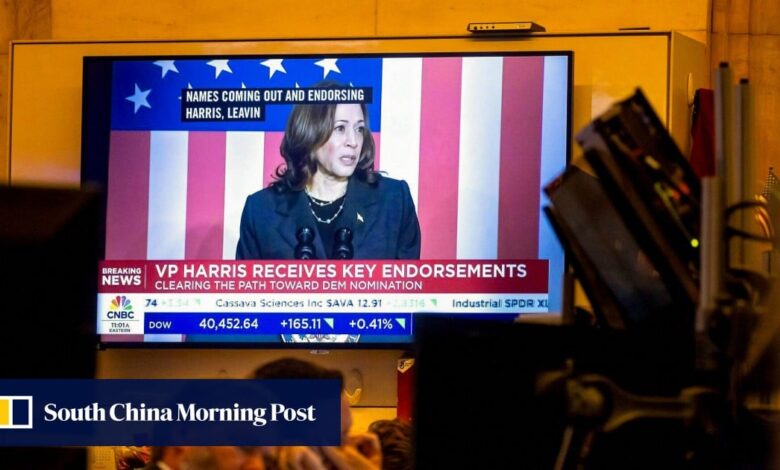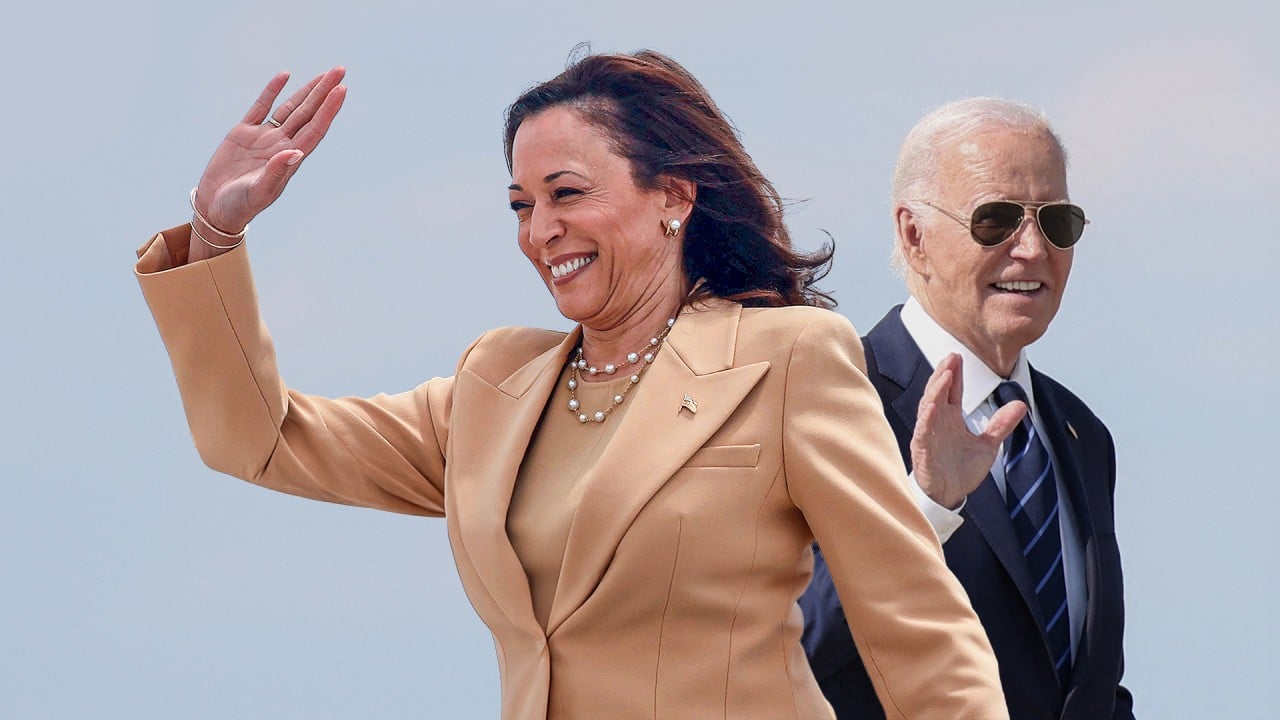What does Biden’s exit from the White House race mean for China’s stock traders?

“Obviously, this is expected to add to volatility in the short-term as the uncertainty about the new Democratic ticket might not be resolved until the party’s convention in August,” said Kristina Hooper, a strategist at Invesco. “There has been a big pickup in volatility in recent days, but I expect that will only increase now.”
The wild gyrations in global markets add to a slew of headwinds already rattling Chinese stocks, including the absence of strong stimulus measures from the Communist Party’s third plenum last week and slower-than-estimated second-quarter economic growth.
Former president Donald Trump, who started a trade war against China in 2018, said he would impose a universal 60 per cent tariff rate on all Chinese imports if re-elected, while a Harris win probably means a continuity in the policies of the Biden administration, which has also ratcheted up curbs on hi-tech exports.
Trump’s return to the White House would be devastating for the global and Chinese economies, as a 60 per cent tariff means a falling-off-the-cliff slowdown in exports, which has been underpinning growth in the Asian nation this year, according to Stephen Innes, a managing director at SPI Asset Management in Bangkok, who dubbed it trade war 2.0.
Such a levy would cut China’s annual growth rate by about 2 percentage points, according to Goldman Sachs, while UBS Group estimates it could cost 2.5 percentage points.
In the Trump trade, which had gained traction after Biden’s poor performance in the TV debate, investors buy the US dollar and bitcoin, while dumping US bonds, because of the former president’s advocacy of trade protectionism, deregulation, increased fiscal spending and tax cuts.
A viable strategy for investors now is to keep a close watch on the opinion polls, given the rising odds that Harris will be named the official presidential candidate at the Democratic National Convention next month, according to ING.
“If Harris can quickly rally widespread party support to challenge Trump, especially in some swing states, the momentum could be hers and the race would be wide open,” said Stefan Koopman, a strategist at Rabobank. “If so, election-related volatility should increase.”
Should Trump continue to lead in the polls, the Trump trade will dominate trading and sentiment, he said.
With Chinese traders starting to price a second term for Trump after Biden’s withdrawal, the CSI 300 Index of onshore shares has dropped every day this week, with a 2.1 per cent decline on Tuesday being the biggest in six months.
“One of the reasons behind the decline is the re-acceleration of the Trump trade amid worries that Biden may be unable to complete his term,” said Zheng Xiaoxia, an analyst at Hua An Securities. “The core of the Trump trade is the imposition of tariffs and tech sanctions, which will dampen risk appetite.”
Investors should now consider selling stocks of export-reliant companies, such as makers of electronics, home appliances and textiles, to hedge against the potential escalation of geopolitical tensions going forward, according to Meng Lei, a strategist at UBS in Shanghai.
“The geopolitical risk will have a negative impact on sentiment and valuations,” he said.
Source link




